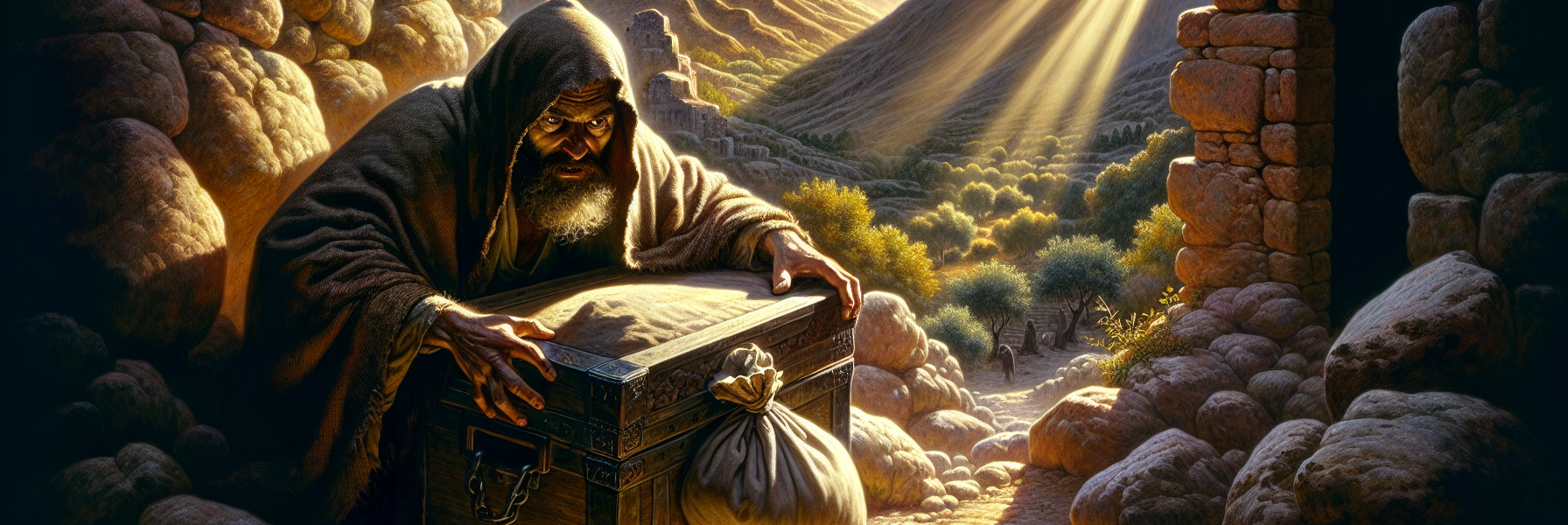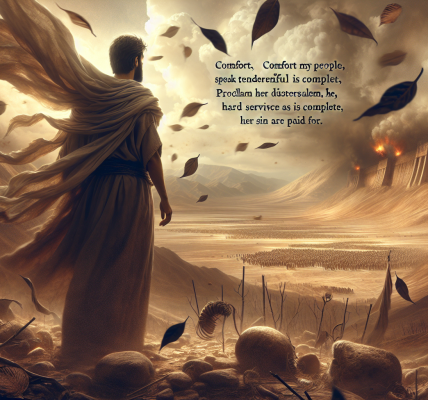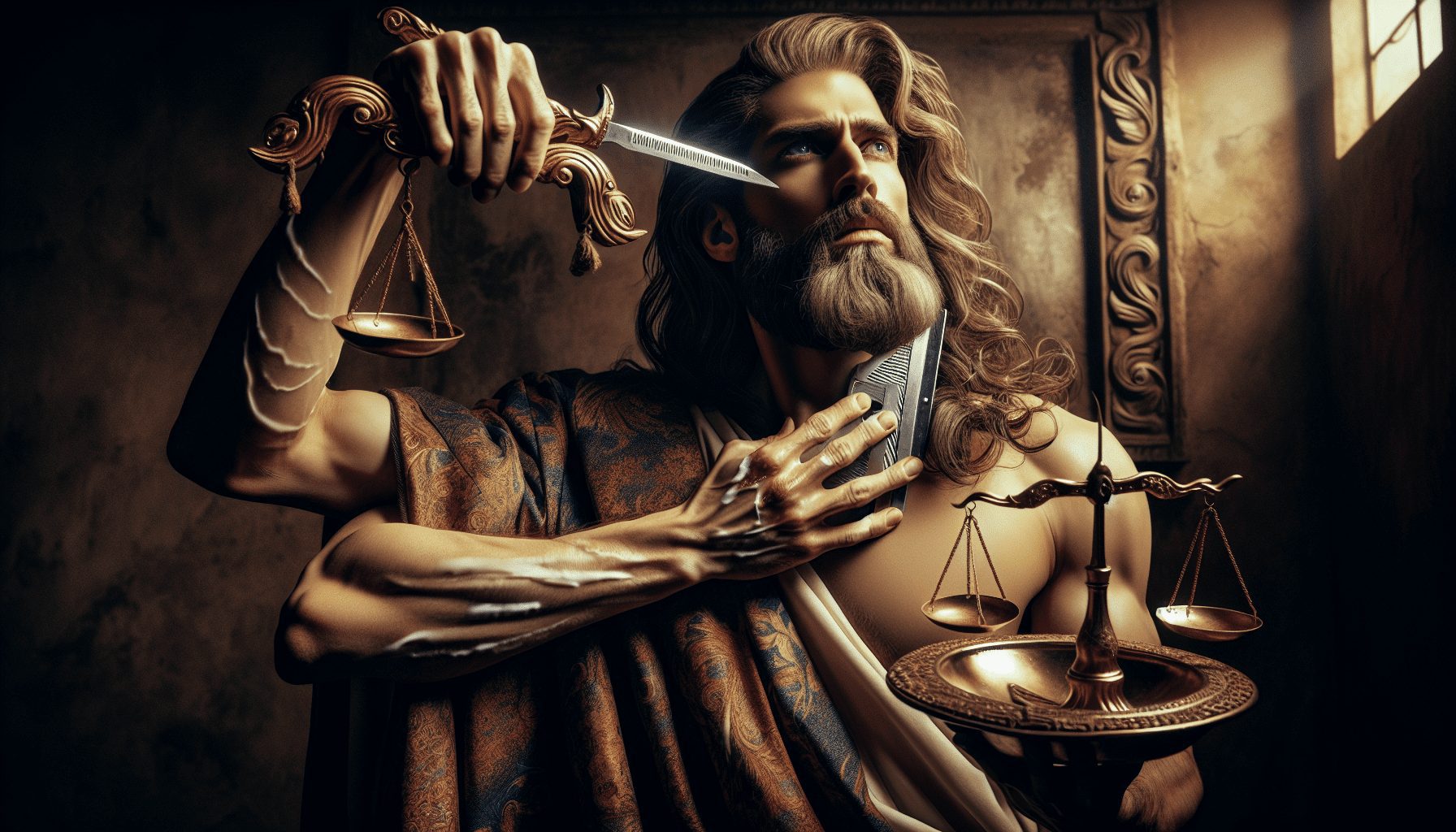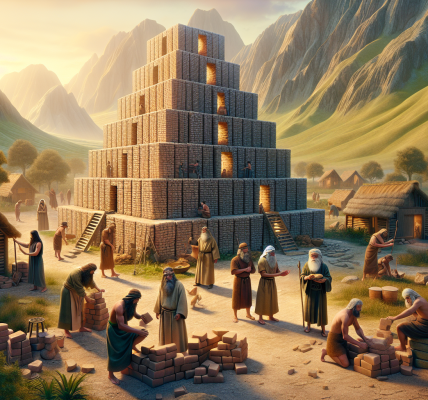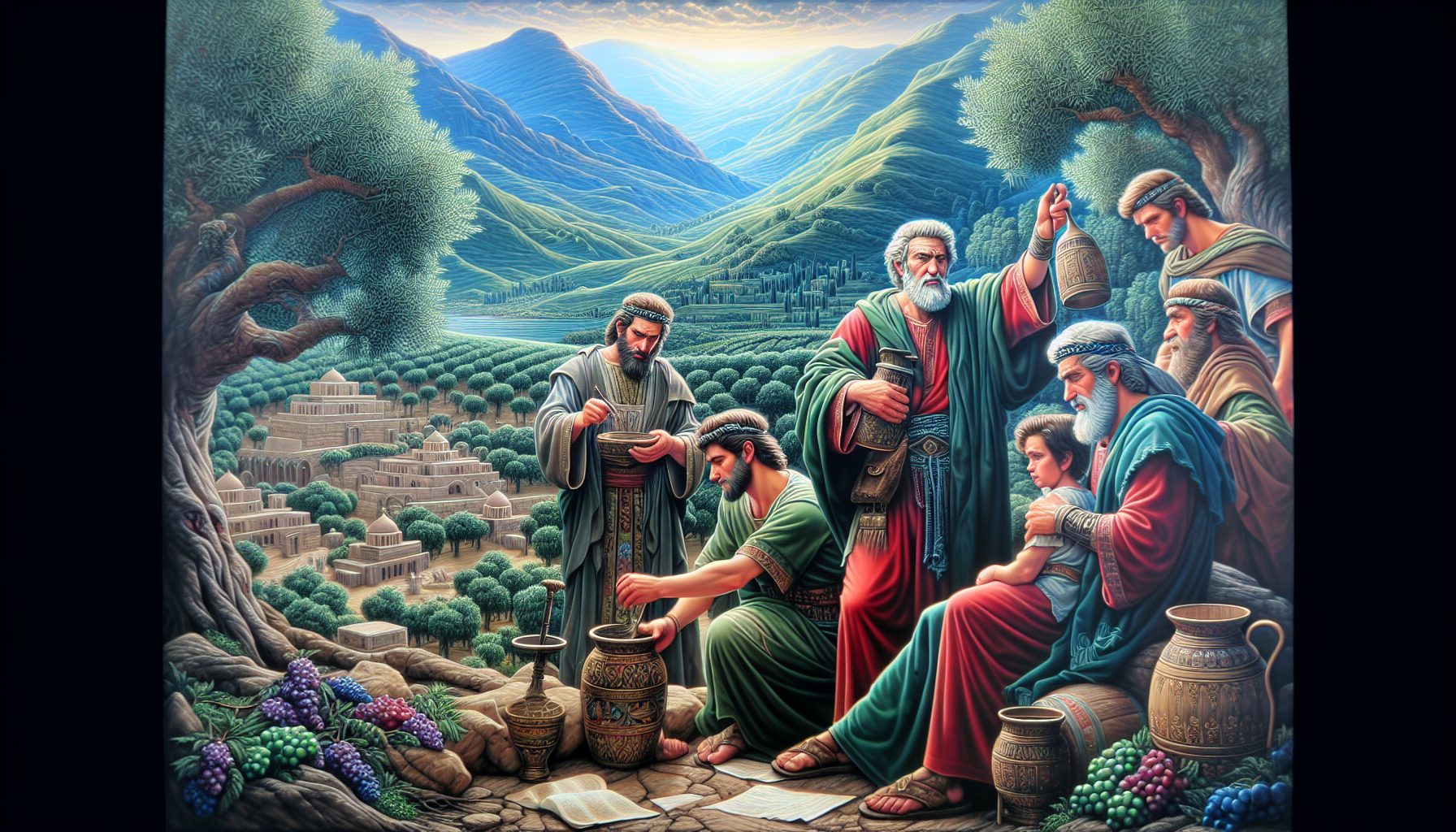**The Idolatry of Micah: A Tale of Misguided Devotion**
In the rugged hills of Ephraim, where the sun cast long shadows over rocky slopes and olive groves, there lived a man named Micah. His name meant “Who is like Yahweh?”—a question that would soon take on a bitter irony in his life. Micah was not a wicked man by intent, but his heart had strayed from the true worship of the Lord, and his actions would lead his household—and eventually an entire tribe—into sin.
### **A Stolen Treasure and a Mother’s Curse**
One evening, as the last light of day faded behind the mountains, Micah crept into his mother’s chamber. His hands trembled as he pried open a heavy chest, his fingers closing around a bag of silver—eleven hundred shekels, a fortune beyond measure. His mother had saved it for years, perhaps for his inheritance, perhaps for a time of need. But Micah, driven by greed or desperation, took it and fled into the night.
Days passed, and his mother soon discovered the theft. Her cries of anguish echoed through the house. “May the Lord curse the one who has done this!” she wailed, not knowing it was her own son. The words struck Micah like a blow. A mother’s curse was no small thing, and fear gripped his heart.
### **A Confession and a Hollow Repentance**
Unable to bear the weight of guilt, Micah returned to his mother, the stolen silver clutched in his hands. “Mother,” he confessed, his voice trembling, “I took your silver. Here it is—all of it. I beg you, forgive me.”
Relief washed over her face, but then she did something unexpected. Instead of chastising him, she sought to appease the divine wrath she had invoked. “My son,” she said, “may the Lord bless you for returning it!” Then, in a misguided attempt to honor God, she declared, “I now consecrate this silver to the Lord, to make a carved image and a metal idol for you.”
Micah’s heart lifted. Surely, this would secure divine favor! But in truth, he and his mother had exchanged one sin for another. The Law of Moses forbade carved images, yet in their ignorance—or willful disobedience—they believed they were worshiping rightly.
### **The Shrine of Micah**
Micah commissioned a silversmith, who hammered and shaped the stolen silver into an idol—a graven image that bore no resemblance to the invisible God of Israel. Alongside it, he fashioned an ephod, a priestly garment meant for seeking divine guidance. Then, in the privacy of his home, he set up a shrine. He appointed one of his sons as priest, though they were not of the tribe of Levi, whom God had chosen for such service.
Word spread through the region, and soon Micah’s house became a place of pilgrimage. “Surely,” the people whispered, “Micah has found favor with God! He has a priest and an ephod—he must know the Lord’s will!” But their faith was misplaced, their worship an abomination before the One who had commanded, *You shall have no other gods before me.*
### **A Wandering Levite and a False Priesthood**
In those days, the tribe of Levi had no inheritance in the land, and many Levites wandered from town to town, seeking a place to serve. One such man, a young Levite from Bethlehem in Judah, journeyed through the hill country of Ephraim, hoping to find shelter.
Micah, seeing him, seized the opportunity. “Stay with me,” he urged, “and be a father and priest to me! I will give you ten shekels of silver a year, a suit of clothes, and your food.” The Levite agreed, for his own heart was not wholly devoted to the Lord. He entered Micah’s service, performing rituals before the idol, offering sacrifices, and pretending to seek God’s counsel through the unlawful ephod.
Micah was overjoyed. “Now I know the Lord will prosper me,” he boasted, “for I have a Levite as my priest!” But his confidence was in a lie. No blessing comes from disobedience, no favor from rebellion.
### **The Folly of Man and the Silence of God**
For years, Micah’s household continued in this delusion. The shrine stood, the sacrifices were made, and the people came—but God did not answer. The heavens were silent, for He had not ordained this worship. The Levite, though of priestly lineage, had no authority to serve outside the tabernacle. The idol, though adorned with silver, was nothing but the work of men’s hands.
And so, in the hills of Ephraim, a man who bore the name “Who is like Yahweh?” had fashioned a god in his own image. He had traded the glory of the invisible God for a thing of metal, the truth for a deception.
**Epilogue: A Warning for All Generations**
The story of Micah stands as a solemn warning—a reminder that good intentions cannot sanctify disobedience. God demands worship in spirit and in truth, not according to the whims of men. In those days, Israel had no king, and every man did what was right in his own eyes. But the Lord sees the heart, and He will not share His glory with idols.
Micah’s silver shrine would not last. Soon, greater chaos would come, and his idol would be stolen, his priest seduced away by a stronger tribe. But that is another tale, another lesson in the folly of human rebellion.
For now, let it be enough to say: *There is no god like Yahweh.* And those who seek Him must do so on His terms, not their own.
